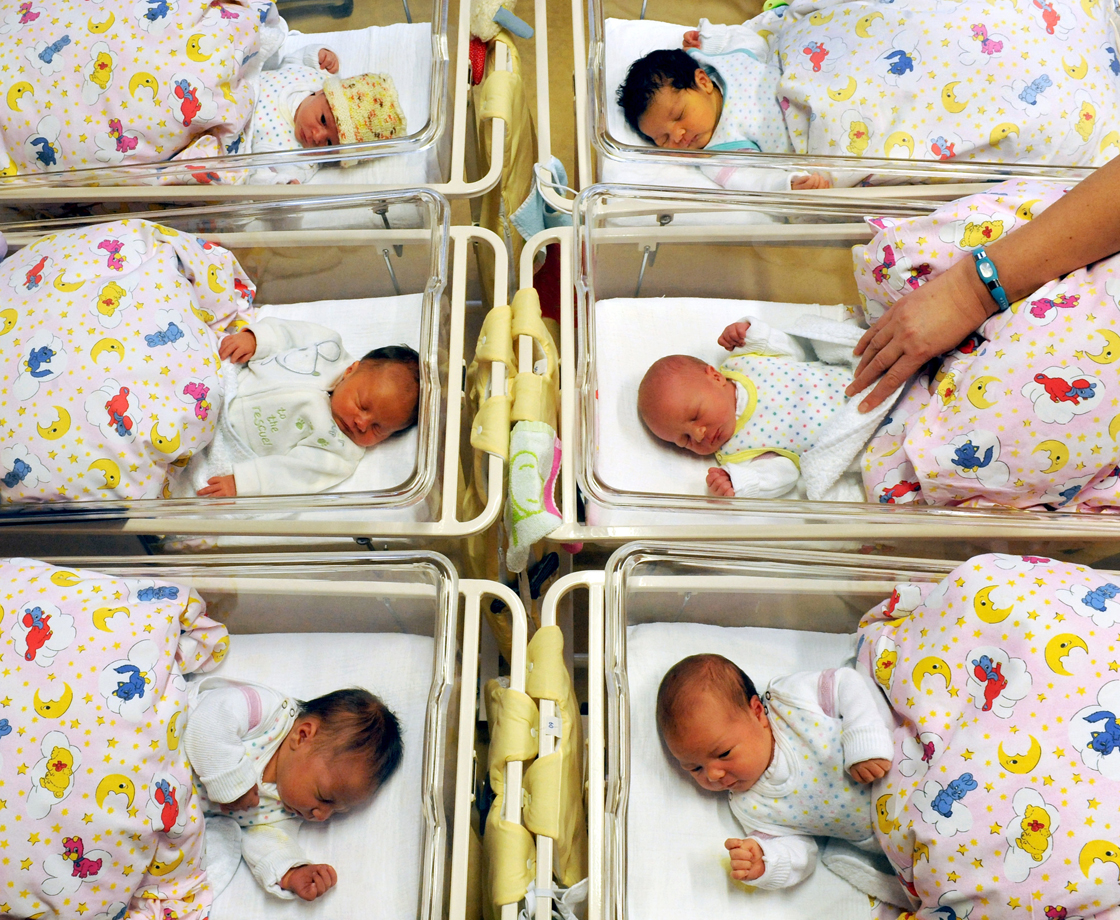TORONTO – Chelsea Winters couldn’t hang on any longer during her two-hour car ride to a Prince Albert hospital from her town of Nipawin, Sask.

Her baby was on the way. Her husband stopped their truck on the side of the highway. With her feet on the dashboard, and his arms beneath her ready for the catch, Winters gave birth to her second daughter, Anya.
With the help of an emergency dispatch officer on the phone, Winters and her husband tied their baby’s umbilical cord with a shoelace. They were sent to hospital for checkups and released the next day.
It’s a unique baby story that may be more common than Canadians realize.
Some expectant moms in rural Canada have had to drive more than two hours to reach the hospital to deliver their babies, a new report says.
These women tend to have bigger babies, longer labour times and, on average, they’re younger moms compared to their urban counterparts, findings from a Canadian Institutes for Health Information study released Thursday suggest.
Read more: Childbirth economics: What older moms and teenage pregnancy say about opportunity in Ontario
“There are unique differences in urban and rural birthing experiences,” Anne McFarlane, CIHI’s vice president of developmental initiatives, said.
- Most Canadians now want early election as Trudeau support drops again: poll
- NDP will vote to topple Trudeau and propose confidence vote, Singh says
- This Canadian is his school’s first medical student in a wheelchair. He’s thinking big
- National Bank gets final approval for Canadian Western Bank takeover
“By understanding them, health planners can review their systems of care to make sure all mothers and babies across Canada have the best possible outcomes,” McFarlane said.
Differences in rural and urban moms
The report touches on a laundry list of disparities between pregnant women in rural communities of the Yukon, Saskatchewan, Manitoba and Nunavut, face compared to city dwellers.
More than 17 per cent of women in rural areas travelled more than two hours to get to hospital, while only one per cent of their urban counterparts had to trek this lengthy distance. More than 80 per cent of pregnant women in the regions studied had to drive at least two hours to get to the delivery room.

Get weekly health news
In Winters’ case, she didn’t even make it to the hospital in Prince Albert. The only doctor who could deliver babies in her town was on vacation when she went into labour.
Saskatchewan’s MD Ambulance officials say a stretch of the province’s highway is getting a reputation as an impromptu baby delivery room.
Since April, three babies have been born on Highway 16 with the help of ambulance dispatchers.
Read more: Highway 16 becoming baby zone: MD Ambulance
Canadian women – whether in rural or urban centres – had similar rates of premature births, but if rural women were giving birth in urban hospitals, they were three times more likely to have a premature baby.
(Graphic courtesy CIHI)
Women in rural areas also have certain health factors working against them: the report documents higher rates of teen births, socioeconomically disadvantaged neighbourhoods, cases of diabetes, hypertention or other conditions.
This adds stress on these expectant moms. If they’re flagged for any complications, their local doctors and hospitals might redirect them to a larger hospital that’s better equipped.
Planning for deliveries in remote areas
Cecile Hunt, CEO of the Prince Albert Parkland Health Region, oversees logistics of delivering babies in the Prince Albert region.
“Rural women have quite a distinct journey as opposed to their urban counterparts. They’re more likely to be travelling and for long periods of time, they’re away from their community and family and they’re often faced with these challenges during this very important time in their lives,” she said.
Read more: Toronto hospital launching landmark study following pregnant women and their babies
Lydia Zilahy lives in Northern Sunrise County, about five hours north of Edmonton. Once doctors in her community learned she was bleeding, the Alberta mom was airlifted to a hospital in Edmonton.
Her husband couldn’t tag along so he had to drive over and missed the delivery. Her daughter, Bianca, was born two months early.
After a week, Zilahy and her daughter were sent to a Grande Prairie hospital so Bianca could receive neonatal care for another seven weeks. Zilahy stayed in hospital while her husband had to return to work in their hometown.
“It’s such an incredible stress, especially having to live through it. There’s no support and you’re all alone,” she said.
“Most people talk about birth plans and I laugh because it sounds lovely, but you don’t have those options. You can’t really plan ahead because there’s no resources there,” she said.
Read more: Are men to blame for menopause? Canadian scientist thinks so
Zilahy is expecting her second child in the new year. This time around, her husband is saving up money and banking vacation time so that he can stay by her side when they leave Northern Sunrise County to have their baby.
Hunt told Global News the report should help health care officials and planners gain insight into the hardships families face and help them assess how the system is currently running.
– With files from the Canadian Press
carmen.chai@globalnews.ca
Follow @Carmen_Chai









Comments